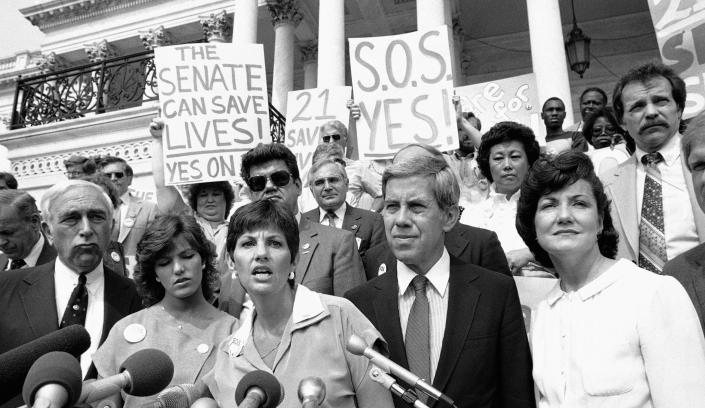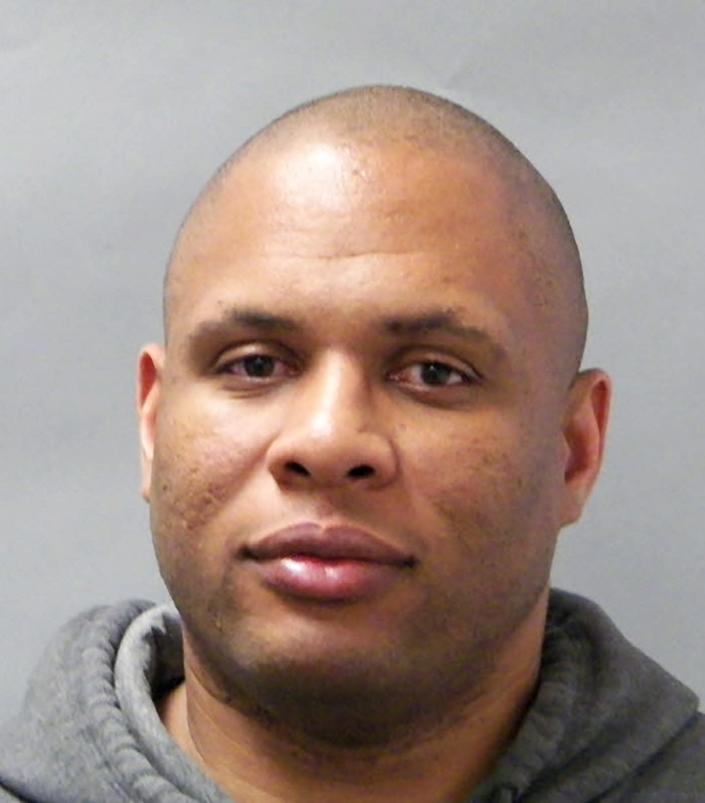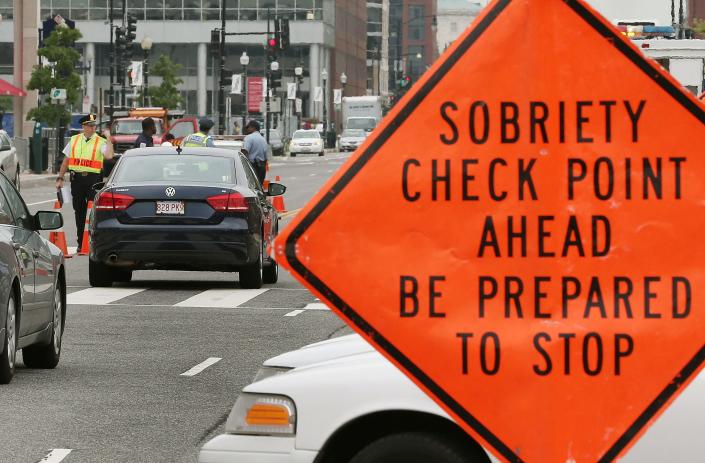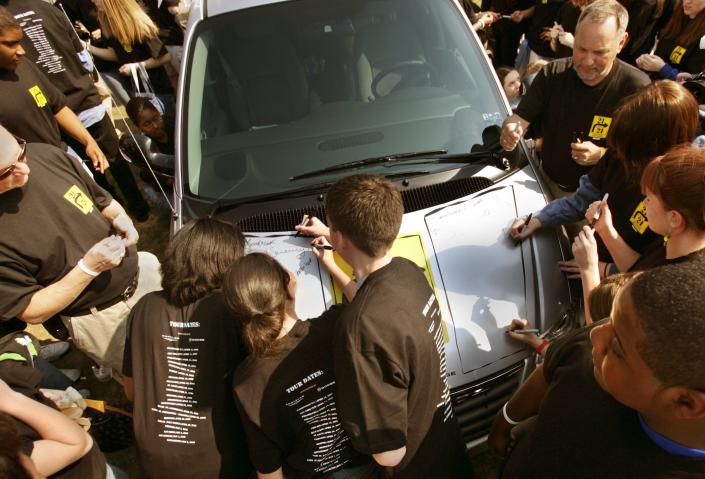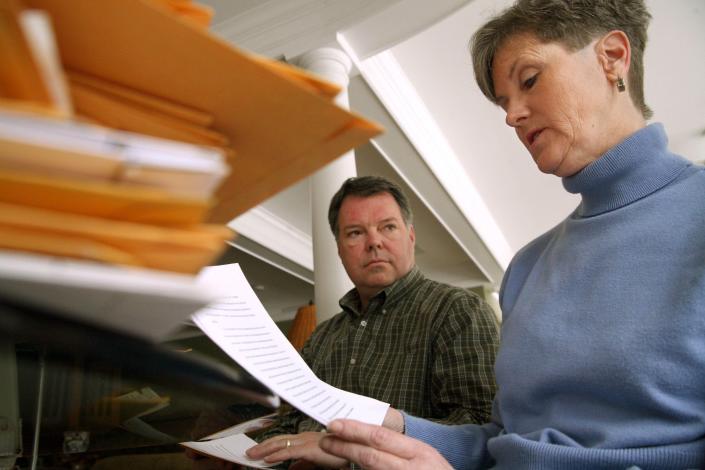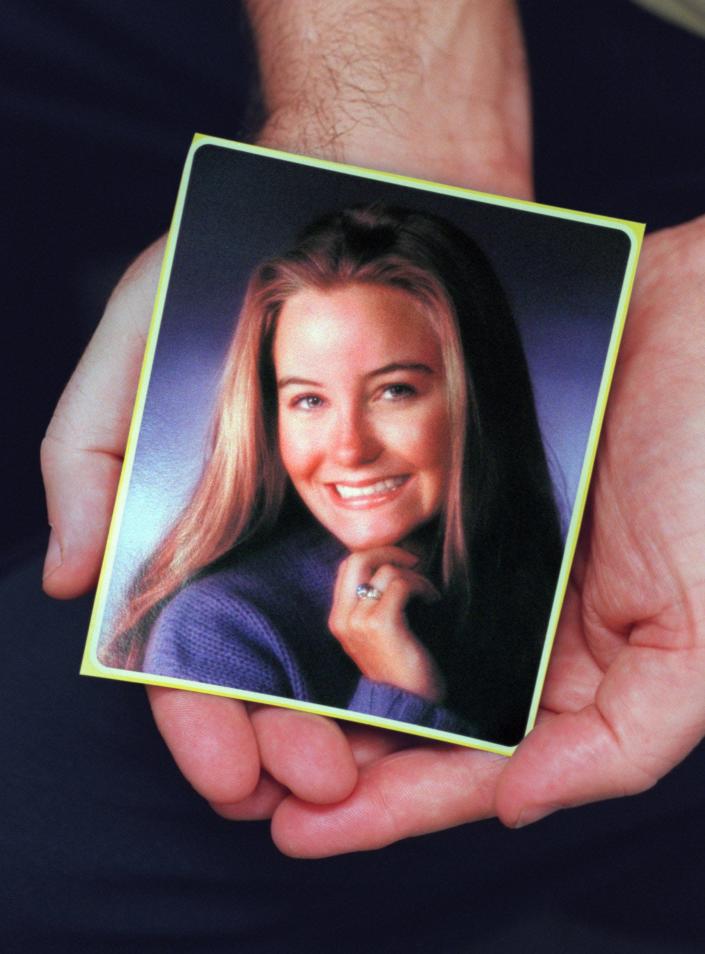New vehicle safety feature could stop drunken drivers from taking the wheel
It’s not as earth-shaking as 1966, when every new car sold in the U.S. suddenly needed seat belts.
Still, the latest auto-safety gizmo has car buffs ranting about freedom versus “the nanny state.”
New cars sold in 2026 are expected to need a techno-spy onboard, checking whether the driver is too drunk to drive. Critics, including some fans of the magazines Car and Driver and Road and Track, say that amounts to Big Brother spying on Americans.
“We can’t idiot-proof this world!” ranted one online naysayer. Enforcing laws already on the books should be enough, others said.
For some motorists caught inebriated behind the wheel, the criminal justice system does seem to work. For others, their drinking and driving don’t stop with one arrest, or two, or even half a dozen. Despite laws and sentences that grew increasingly stiffer since the founding of Mothers Against Drunk Driving (MADD) in 1980, some habitual drunks keep going and going, especially if they can hire good lawyers.
Consider the case of Derrick Okonmah of Clarkston, Clarkson, who is himself a lawyer. Actually, consider the 11 cases involving alcohol in which Okonmah, 44, has been pulled over since 2010. Through his attorney, Okonmah declined to comment for this story.
Okonmah hasn’t killed or even injured anyone. So he hasn’t attracted the attention of the Kentucky man who died in a deadly crash three years ago that wiped out an entire Dearborn family returning from Disney World. That crash drew nationwide attention, spurring U.S. Rep. Debbie Dingell, who knew the family, to sponsor a law signed late last year by President Joe Biden. It requires automakers to install sensors on future models that will disable a car being driven by someone who’s inebriated or otherwise unable to drive.
Consider the case of Derrick Okonmah of Clarkston, Clarkson, who is himself a lawyer. Actually, consider the 11 cases involving alcohol in which Okonmah, 44, has been pulled over since 2010. Through his attorney, Okonmah declined to comment for this story.
The driving history of motorists such as Okonmah shows a pattern of serial offenses that MADD says almost invariably leads to crashes, and that Dingell determined must be stopped. Okonmah has racked up driving arrests involving alcohol in at least 11 locales in Oakland, Washtenaw, and Clinton counties. According to police reports and court documents, he has been clocked at 100 mph on U.S. 23; repeatedly exhaled blood-alcohol levels that Michigan law calls “super drunk” — at or above .17, which is more than double Michigan’s threshold for drunken driving of .08; and he has often been caught with open bottles of alcohol in his vehicle.
His latest arrest was in Ferndale early last year, when he blew .19 on a Breathalyzer, more than double the threshold for drunken driving. He was pulled over at 11 p.m. for driving without headlights after leaving a strip club on 8 Mile Road, Ferndale police Capt. Dave Spellman said. Okonmah admitted that he was driving with his driver’s license suspended, Spellman said. Inside the console of his 2011 Honda was a 23.5-oz. can of Four Loko Hard Seltzer, “which was open and half-empty.” This beverage has the same 12% alcohol strength as most wines.
He has been charged with operating under the influence of alcohol, third (or more) offense, and continuing to drive without a valid license. He awaits trial in Oakland Circuit Court after half a dozen adjournments requested by his defense attorney. Okonmah is wearing a court-ordered tether equipped with a sensor that detects whether the defendant has consumed alcohol, his defense attorney, Dov Lustig, said.
“The client has done the right thing and has not used any alcohol” since his arrest, Lustig said. As shocking as Okonmah’s string of OWIs (operating while intoxicated) may sound, he simply has “an ongoing substance-abuse problem,” said Lustig, who specializes in defending motorists charged with operating under the influence of alcohol.
Plenty of other motorists habitually drive while under the influence of alcohol, sometimes consuming alcohol as they drive. According to police and prosecutors, suspending such drivers’ licenses does little to stop them. In Royal Oak last month, police responded to a tipster who said a driver had barely missed striking parked cars. When police caught up, it was a 47-year-old Royal Oak resident who had an open bottle of vodka in the car. She was arrested for Operating Under the Influence, third offense.
In Troy, where patrol officers receive advanced training for detecting impaired drivers, police arrested six drunken drivers on just one recent night in January. They included a 32-year-old man from St. Clair Shores who took a Breathalyzer test and blew .16, double the Michigan threshold for “drunk”; a 37-year-old Troy woman who fled on foot after rear-ending another car, then was arrested at her home, intoxicated, after she admitted to driving without a license suspended; a 40-year-old Detroit man found passed out with his Cadillac’s engine running and the car scattered with a partially full beer and liquor bottles, and who then blew a sky-high blood alcohol level of .26 at the police station, and a 39-year-old Sterling Heights man who, after striking curbs and nearly hitting other cars with his pickup, told police he’d had too much to drink and hadn’t had a valid license in 20 years.
All were repeated alcohol offenders, according to police reports. Each could’ve caused a fatal crash.
For more than 40 years, MADD has campaigned for an end to the annual carnage caused by drunken drivers. Despite decades of progress, leaders say it’s not enough. Even with tougher sentencing, billboards and TV ads, school programs, and the words “Drink Responsibly” on beer cans, the nation’s drunken drivers are responsible for at least 10,000 highway deaths a year, including about 1,000 children. No matter how much society tries to educate about the reasons not to drink and drive, and no matter how harshly it punishes offenders, some people will just keep doing it, said Alex Otte, MADD national president for 2021-22.
“We hear all the time about these egregious offenders. I was in Washington state recently hearing about someone who had 17 DUI arrests,” said Otte, who lives in Lexington, Kentucky. Drunken-driving deaths have gone down by about 50% since MADD was founded in 1980 by a California woman whose daughter while walking to a church festival was fatally struck by a serial drunken driver.
“But the movement has stagnated for the past decade, and with the pandemic, it’s gotten worse,” Otte said.
Pandemic drinking
Deaths due to drunken-driving collisions increased by 9% in 2020 compared with 2019 despite the fact the vehicle miles traveled fell by 13% due to COVID-19, according to the National Highway Traffic Safety Administration. Data for 2021 is expected to show a similar spike in drunken-driving deaths, Otte said.
“We knew that we needed something really different to turn this around. We believe this technology is going to do it,” she said, referring to the in-car sensors called for by Michigan’s congressional delegation. Not only was the initial idea pushed by Dingell. The innovative law was championed by Michigan’s U.S. Sen. Gary Peters, who was honored in January with MADD’s “Legislative Hero” award “for his commitment to eliminating drunken driving with automotive safety technology.” Peters, who chairs the Senate Commerce Subcommittee on Surface Transportation, “was a vital cosponsor of the RIDE Act in the Senate,” said Rana Abbas Taylor, whose sister died in the crash that traumatized Dearborn and alerted Dingell to the issue.
traumatized Dearborn and alerted Dingell to the issue.
Another family member of a drunken-driving victim has spent nearly 25 years, thousands of hours and much of his own income trying to educate and scare drivers into driving sober. David Easterbrook said his efforts haven’t been a failure but he agrees wholeheartedly with MADD, Dingell, Peters and researchers who’ve studied the issue: Something more was needed to stop the hard-core, relentlessly intoxicated repeat offenders and to stop the occasional first-time super-drunk who feels invulnerable, even at high speed and without a seat belt.
On a fateful night in 1997, Easterbrook, then a marketing executive with Kmart, stood on his front lawn in Troy and screamed in grief after a police officer told him that his daughter Ashley had been killed. She’d died along with two of her friends when a drunken driver ran a red light at what police estimated to be nearly 100 mph. The teens had been driving home from getting ice cream. It was five days before her high school graduation. The other driver died hours later on a hospital operating table.
Ashley’s dream
“It was a very tough time for me. It was, ‘She’s not allowed to live, I shouldn’t be,’ ” Easterbrook said. Soon, though, he channeled his grief and marketing know-how into founding Ashley’s Dream, a foundation to combat drunken driving. In the 25 years since his daughter’s death, the nonprofit group has raised money for signs and billboards (one batch said “Drunk Driving — You Can’t Afford It”); paid nearly $1 million in college scholarships and school programs; and had Easterbrook and his son Alex giving speeches to countless school groups.
He received heartfelt thanks from other parents, from prosecutors and judges, teachers and principals, and from MADD. Still, he readily admitted, it wasn’t enough.
“People are still dying,” he said from Atlanta, where he and his wife, Gail, relocated to be close to grandchildren, and where he operates a trio of auto dealership supply firms called AME Companies. Its name has his daughter’s initials. Last month, one of his employees’ sons, a teenage boy, played in a lacrosse game and, afterward, the boy’s teammate was walking home when “a drunk driver ran up on the sidewalk, ran over and killed him,” Easterbrook said.
“Turned out, the guy who killed him has a son on the dead kid’s football team. And then, three days later, the father commits suicide. It’s so tragic, and it runs so deep, and it’s so preventable,” he said.
Easterbrook said he’s delighted to hear about the prospect of a computerized cop coming to the inside of every vehicle dashboard.
“I love that technology,” he said, adding:
“We can put a man on the moon, right? You’d think we could stop a drunk guy from driving.”

